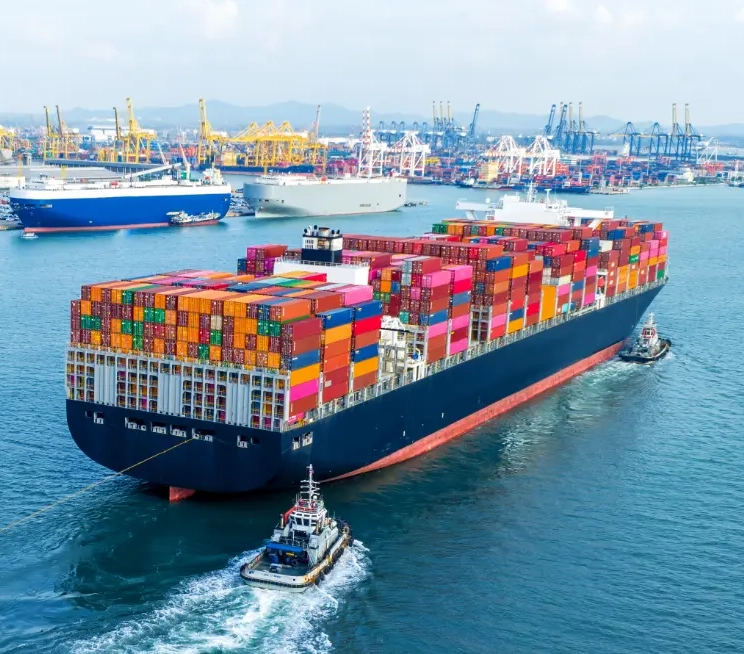The rapid rise of eCommerce has fundamentally transformed the landscape of global supply chains. Traditional supply chains, which were once designed to serve brick-and-mortar stores, have had to adapt to meet the demands of online shopping. This shift has brought about both challenges and opportunities for businesses around the world.

Traditional Supply Chains vs. E-Commerce
Traditional supply chains were built around a straightforward model: manufacturers produced goods, which were then distributed to warehouses and eventually delivered to retail stores. Customers would visit these stores, purchase items, and the cycle would repeat. This model was predictable and relied on bulk orders, large inventories, and scheduled deliveries.
However, the advent of eCommerce has disrupted this model. Online shopping has introduced a new level of complexity and speed to supply chains. Instead of large shipments to stores, businesses now have to handle small, frequent orders that need to be delivered directly to customers’ doorsteps. This shift has led to the development of a more dynamic and flexible supply chain model.
Key Impacts of eCommerce on Supply Chains
1. Increased Demand for Speed and Efficiency
In the world of eCommerce, speed is everything. Customers expect their orders to be processed and delivered quickly, often within a day or two. This has forced businesses to rethink their supply chain strategies, focusing on optimizing every step of the process to reduce lead times.
Warehouses now operate with greater efficiency, utilizing automation and advanced technology to pick, pack, and ship orders faster than ever before.
2. Shift Toward Decentralized Warehousing
To meet the demand for faster delivery times, many businesses have adopted a decentralized warehousing model. Instead of relying on a few large distribution centers, companies are setting up smaller warehouses closer to key markets.
This allows for quicker deliveries and reduces the cost and time associated with shipping products over long distances.
3. Increased Complexity in Inventory Management
Managing inventory in the eCommerce era is a far more complex task than it was in traditional retail. Businesses must now maintain accurate, real-time inventory data across multiple channels, including online stores, physical locations, and third-party marketplaces.
This requires sophisticated inventory management systems that can track stock levels, predict demand, and automatically reorder products when needed.
4. Enhanced Focus on Customer Experience
The rise of eCommerce has shifted the focus of supply chains from simply moving products to enhancing the overall customer experience. Businesses must now ensure that every aspect of the supply chain, from order processing to delivery, is aligned with customer expectations.
This includes offering multiple shipping options, providing real-time tracking information, and ensuring that products arrive in perfect condition.
5. Sustainability Challenges
The demand for faster deliveries and increased order volumes has raised concerns about the environmental impact of eCommerce. The need for rapid transportation often leads to higher carbon emissions, and the increase in packaging waste is another significant issue.
As a result, many companies are exploring sustainable supply chain practices, such as using eco-friendly packaging, optimizing delivery routes, and investing in carbon offset programs.
The Future of Supply Chains in an eCommerce-Driven World
The impact of eCommerce on traditional supply chains is undeniable, and as online shopping continues to grow, supply chains will need to keep evolving. Businesses must embrace new technologies, such as artificial intelligence and blockchain, to further streamline their operations and improve efficiency.
Additionally, the push for sustainability will likely drive innovation in areas like green logistics and circular supply chains.
Final Thought
In conclusion, while the rise of eCommerce has presented challenges to traditional supply chains, it has also opened up new opportunities for businesses to innovate and improve. By adapting to the changing landscape, companies can create supply chains that are not only more efficient but also better aligned with the needs and expectations of today’s consumers.
At Eleevate Logistics, we understand the complexities of managing supply chains in the fast-paced world of eCommerce. Whether you’re looking to optimize your delivery processes, improve inventory management, or explore sustainable practices, we’re here to help.
Contact us today to learn how we can support your business in navigating the challenges and seizing the opportunities of the eCommerce era. Let’s elevate your supply chain to new heights!


